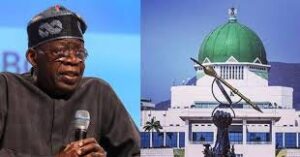
According to Usman Ishaq Shehu, who wrote via X: “There has been a misleading narrative circulating across social and traditional media, questioning why President Bola Ahmed Tinubu is seeking to borrow $21 billion when anti-corruption agencies such as the EFCC and ICPC have reportedly recovered $967.5 billion and ₦277 billion. While this claim might appear logical at first glance, it is factually incorrect and ignores the practical realities of economic governance.
As someone who has consistently followed and analyzed government reforms since 2015, I find it necessary to address this issue with clarity, evidence, and proper context.
First, the numbers are inaccurate
According to verified data from reputable sources, including The Guardian, the EFCC recovered approximately $105 million, ₦248 billion, and over 750 properties in 2024. The ICPC recovered ₦29.685 billion and $966,900. Combined, these figures amount to about $106 million and ₦277.685 billion. There is no credible record of $967.5 billion being recovered by any Nigerian agency. This exaggerated figure being circulated is either a misprint or a deliberate distortion of facts.
Second, recovered funds are not automatically available for public spending
Funds recovered through anti-corruption efforts are often tied up in legal proceedings, asset verification, international protocols, or are designated for specific restitution processes. Much of the money and assets recovered must go through court rulings or be processed through the appropriate legal framework before they can be utilized. Therefore, they do not function as an instant budgetary resource for the federal government.
Third, the borrowing plan is part of a broader economic reform strategy
President Tinubu’s $21 billion borrowing request, as reported by Reuters, is not arbitrary. It is part of a broader economic strategy aimed at reviving and stabilizing the Nigerian economy. These funds are earmarked for crucial infrastructure, agriculture, transportation, health, education, and other development programs. This is in line with the external borrowing plan covering 2022 to 2024, which the current administration has updated to reflect the nation’s pressing needs.
Tinubu’s administration has taken bold but necessary steps such as subsidy removal and exchange rate reform to reposition Nigeria’s economy. These moves, while difficult in the short term, are critical for long-term growth. The borrowing is intended to help manage this transition and support critical investments that will benefit millions of Nigerians.
Fourth, comparing loan requests with recoveries is a false equivalence
National budgeting and development financing require more than recovered assets. All over the world, nations engage in responsible borrowing to fund infrastructure and support economic growth. The issue is not whether to borrow, but whether the funds are used transparently and productively. In this case, the borrowing is targeted at development goals that are necessary to lift Nigeria out of its current challenges.
Conclusion
It is important to base public debate on facts and context. The claim that recovered funds should replace development borrowing is misleading and oversimplified. While Nigeria must continue to strengthen anti-corruption efforts, it must also leverage external financing strategically to meet its development goals. With proper management, oversight, and accountability, the Tinubu administration’s borrowing plan is a responsible step toward economic recovery and transformation.”
